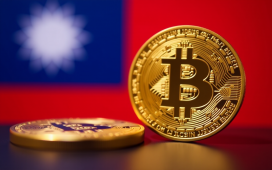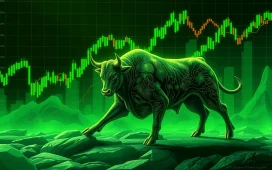As its peers in traditional finance push deeper into crypto—including BlackRock’s Bitcoin ETF and Fidelity’s trading platform—Goldman Sachs is preparing to make a move of its own. This comes as the 150-year-old banking behemoth is seeing a major uptick in interest from clients, digital assets global head Mathew McDermott told Fortune.
McDermott says Goldman Sachs intends to expand its crypto offerings, including ambitious initiatives in the red-hot sector of tokenization, where so-called “real-world assets” such as money market funds and real estate holdings are issued on public or private blockchains. According to McDermott, Goldman Sachs is set to launch three tokenization projects by the end of the year with major clients, including its first in the U.S.
While BlackRock and Franklin Templeton are also testing the tokenization waters, McDermott said the key to success will be creating products that investors want, which is why the bank recently held a digital assets summit in London attended by over 500 clients. “There’s no point doing it just for the sake of it,” he told Fortune. “The definite feedback is, this is something that actually will change the nature of how they can invest.”
Differing views
After a deep crypto winter set off by the collapse of FTX, markets came roaring back this year, buoyed by the January launch of Bitcoin ETFs. According to financial filings, Goldman Sachs took on a key role in the ETF offerings by serving as an authorized participant, meaning it would help with the redemption and creation mechanism for the investment vehicles (including for BlackRock’s IBIT ETF).
McDermott described the launch of the ETFs as a “renewed momentum in crypto,” though the view is not shared across his bank. In April, the Wall Street Journal published an interview with Sharmin Mossavar-Rahmani, the chief investment officer for Goldman Sachs Wealth Management, where the financial veteran said that she does not view crypto as an investment asset class and has not seen interest from clients.
“The nice thing is, about an institution of our size, there are differing views,” McDermott told Fortune. He said that Goldman Sachs is more active in crypto from an institutional perspective, including trading cash-settled crypto derivatives on behalf of clients, along with its involvement in the ETF markets. “We’ve continued to see, certainly this year, an uptick and a broadening in the product suite that clients would like to see available,” he said.
Tokenization remains a central part of the bank’s plans. Goldman Sachs has dabbled in the field, including working on a bond issuance with the European Investment Bank in 2022 and tokenizing a sovereign green bond for the Hong Kong Monetary Authority in 2023, as well as launching the Goldman Sachs Digital Asset Platform in 2023 to facilitate the tokenization of assets.
The biggest tokenization launch this year has been BlackRock’s treasury fund BUIDL, which reached $500 million on Monday and operates on Ethereum, a public blockchain. McDermott said that BlackRock, along with similar funds from Franklin Templeton, targets a retail customer base, while Goldman Sachs is focused more on institutions and would work exclusively with private blockchains due to regulatory restrictions. He said that the bank’s aim is to create actual marketplaces for tokenized assets, as well as delivering improvements when it comes to speed and the types of assets that can be used as collateral.
McDermott declined to provide specifics on the three tokenization projects set to launch this year but said that one is focused on the fund complex in the U.S., and another on debt issuance in Europe.
With the U.S. presidential election and a potential change in the government’s regulatory approach toward crypto just a few months away, McDermott said that the bank’s opportunities in the space could expand, including being able to hold spot crypto assets. “There could be other things that we as a firm would naturally be interested, subject to approval, to do, like execution and maybe sub-custody,” he told Fortune.










